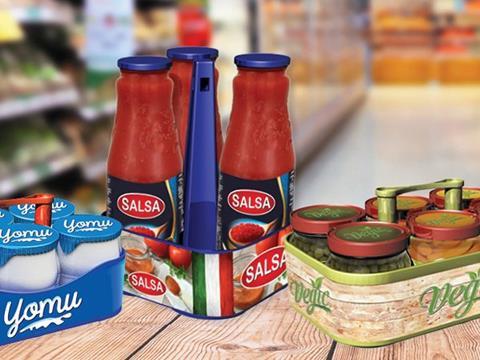
DS Smith Plastics, Injection Moulding business segment has launched a new line of packaging options known as Loop Ready Packaging (LRP). LRPs are robust, re-usable, returnable and fully recyclable packaging options that, according to the company, 'deliver incredible benefits for brands, retailers, consumers and the planet'.
Consumers will pay a small deposit on the LRP when making their purchase. Once they have finished with the items, they simply return the packaging and jars to the store for a refund of the deposit. This process is already automated in many places with a machine that scans the packaging and contents and provides a coupon with a store credit for future purchases.
It is a tried and tested method used for beverage crates today. Those crates can often last up to 30 years and are cycled from brand to store to home thousands of times, saving tonnes of CO2. At the end of their long life, the crates are ground up and turned into new crates for another long-life cycle.
According to DS Smith, LRPs are the next logical evolution from RRPs and SRPs. They deliver a zero-waste option for many of retailers’ most popular products while maintaining affordability, improving convenience and closing the loop to ensure a circular life cycle. The initial products will focus on jars of non-perishables—such as vegetables, sauces and more—but the company says the technology could be rolled out across many more product lines in the future.
“This system has worked successfully with returnable crates for beverages for more than 50 years. It reminds us of the milkman delivering returnable milk bottles. It could work just as well for peas,” said Paul Baeyens, Managing Director, DS Smith Plastics. “At DS Smith Plastics we are constantly on the look-out for new innovations, greater sustainability and inspiration. Sometimes you need to look to the past to find the right inspiration.”
DS Smith also says that brands can do much more than 'simply burnish their sustainability credentials' with LRPs. Bulk purchases of four, six or eight items at a time would increase sales while simultaneously lowering handling costs. Meanwhile, it says marketing departments 'will love the on-shelf visibility' and in the case of a change in branding, or a promotion, the IML stickers can be replaced with the old ones being recycled too.
Retailers can 'drastically cut' the mounds of plastic and cardboard waste that need to be disposed of currently.













